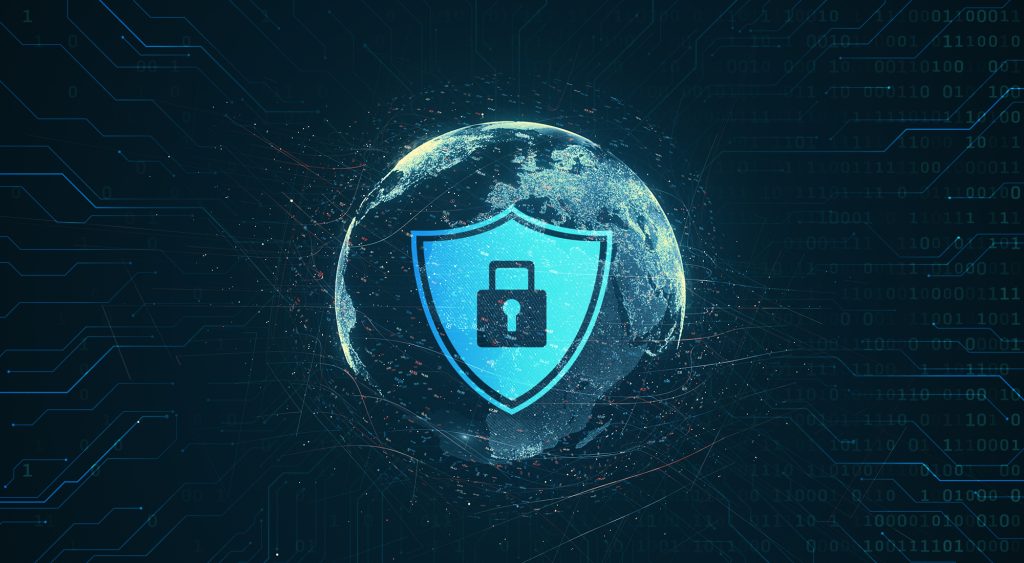
The rapid advancement of digital technologies has led to an increased reliance on the internet for both personal and business activities. While the benefits of this digital transformation are abundant, so are the risks associated with cyber threats and legal challenges. As more organizations become vulnerable to data breaches, cyberattacks, and malicious activities, the intersection between cyber law and cybersecurity has emerged as a critical area for professionals in both fields to collaborate and shape the future of digital safety. This collaboration offers exciting career paths and professional development opportunities for those looking to enter or transition into the ever-growing tech industry.
In this blog, we will explore how cyber law and cybersecurity intersect, why this area is becoming a crucial focus for organizations worldwide, and how professionals can navigate this new frontier to achieve success in their careers.
Understanding Cyber Law and Cybersecurity
Before diving into the intersection of these two fields, it’s important to understand what each term represents and how they differ yet complement each other.
What is Cyber Law?
Cyber law, also known as Internet law, refers to the legal issues related to the internet, digital technologies, and cyberspace. It encompasses a wide range of legal topics, including but not limited to data protection, privacy laws, intellectual property rights, and online business regulations. In today’s increasingly connected world, cyber law plays an essential role in governing digital activities and protecting users and organizations from malicious threats, fraud, and misuse of digital data.
Some key aspects of cyber law include:
- Data Protection: Ensuring that organizations handle personal and sensitive information responsibly, with appropriate safeguards in place to protect it from data breaches.
- Intellectual Property (IP): Addressing legal concerns related to software, digital content, patents, and copyrights in the digital space.
- Privacy Laws: Setting rules around how personal information is collected, stored, and shared, with a focus on protecting individual privacy rights.
- Cybercrime and Enforcement: Providing a framework for prosecuting illegal activities that occur online, including hacking, identity theft, and online fraud.
In countries like India, cyber law is also evolving rapidly, with the government taking steps to implement stricter laws to protect users and businesses alike. Understanding the ever-changing cyber law in India is crucial for anyone looking to work in this field.
What is Cybersecurity?
Cybersecurity refers to the practices, technologies, and processes designed to protect systems, networks, and data from digital attacks. In an age where everything from personal data to critical infrastructure relies on internet connectivity, cybersecurity professionals are tasked with defending against a wide range of threats, from hacking attempts to malware infections.
Key areas of cybersecurity include:
- Network Security: Protecting the integrity of computer networks by implementing firewalls, encryption, and intrusion detection systems to prevent unauthorized access.
- Information Security: Ensuring that sensitive information is protected both during transmission and while at rest.
- Incident Response: Preparing for and responding to data breaches, cyberattacks, and other security incidents in a timely and effective manner.
- Risk Management: Identifying, evaluating, and mitigating risks that could harm the organization’s digital assets.
While cybersecurity primarily focuses on defending against digital threats, the legal aspects of the digital world — governed by cyber law — ensure that organizations are held accountable for how they handle data and respond to cyber incidents.
The Intersection of Cyber Law and Cybersecurity
As businesses and governments face an increasingly complex landscape of cyber threats, the relationship between cyber law and cybersecurity becomes more important than ever. The legal requirements and security measures must work in tandem to protect both individual and organizational interests. Here’s a closer look at how these two fields intersect:
1. Legal Compliance and Security Measures
In many jurisdictions, including India, organizations are required to comply with specific cyber laws that mandate the protection of customer data and personal information. These laws often include requirements for implementing certain cybersecurity practices, such as encrypting sensitive data and ensuring secure communications.
For example, India’s Information Technology Act, 2000 (IT Act) governs issues related to cybersecurity and cybercrime. It outlines penalties for cybercrimes, including hacking, identity theft, and the dissemination of harmful content. Additionally, the General Data Protection Regulation (GDPR) in Europe imposes strict regulations on how businesses collect, store, and process personal data. Organizations found non-compliant can face hefty fines.
For professionals in the cybersecurity field, understanding these regulations is crucial because security practices must align with legal obligations. Failing to meet legal requirements not only exposes organizations to cyberattacks but also to legal liabilities.
2. Data Breach Response and Legal Consequences
When a company suffers a data breach, it doesn’t only face the immediate technical challenges of containing the breach and securing its systems. It must also comply with cyber law requirements related to reporting the breach to regulatory authorities, informing affected individuals, and taking steps to prevent future incidents.
Legal requirements often specify how soon an organization must notify stakeholders after a data breach. For instance, the GDPR mandates that businesses must report breaches within 72 hours. Similarly, Indian laws also require swift disclosure of breaches involving personal data.
This creates a clear intersection where cybersecurity teams must work closely with legal professionals to ensure compliance with the law while addressing technical challenges.
3. Intellectual Property Protection
Both cyber law and cybersecurity are crucial for protecting intellectual property in the digital world. As organizations increasingly rely on digital tools, the need to safeguard proprietary information, patents, and software grows. Cybersecurity measures help protect intellectual property from theft and unauthorized access, while cyber law provides the legal framework for enforcing IP rights and prosecuting infringements.
For example, if a hacker steals a company’s proprietary software, cybersecurity professionals will work to contain the breach and assess the extent of the theft, while cyber law specialists will help the company pursue legal action to recover the stolen IP and seek damages.
4. Cybercrime Investigation and Prosecution
As cybercrimes such as hacking, identity theft, and online fraud continue to rise, collaboration between cybersecurity experts and legal professionals is essential for investigating and prosecuting offenders. While cybersecurity teams focus on identifying vulnerabilities, gathering evidence, and mitigating future risks, cyber law practitioners are responsible for applying the legal framework to bring perpetrators to justice.
For instance, in a case of cyber fraud, cybersecurity professionals may track digital footprints, analyze security logs, and gather evidence, while legal teams will use cyber law to initiate legal proceedings, subpoenas, or warrants for investigation.
Career Paths in Cyber Law and Cybersecurity

As the importance of cybersecurity and cyber law continues to grow, a new wave of career opportunities is emerging. Professionals in both fields are now required to understand not only the technical aspects of cybersecurity but also the legal implications surrounding the digital world.
1. Cybersecurity Analyst
A cybersecurity analyst works on identifying, preventing, and responding to potential security breaches. This role often involves a combination of technical expertise in firewalls, encryption, and network security with an understanding of cyber law to ensure compliance with regulations.
2. Cybersecurity Lawyer
A cybersecurity lawyer specializes in the legal aspects of digital technologies. This includes data protection laws, intellectual property rights, and the legal challenges faced by organizations when responding to cyber incidents. This role requires knowledge of both cyber law and cybersecurity practices to advise clients on how to protect themselves legally and secure their systems.
3. Compliance Officer
In an organization, the compliance officer ensures that cybersecurity practices meet legal and regulatory standards. This professional must stay updated on cyber law changes while working with cybersecurity teams to ensure that the organization complies with data protection and cybersecurity laws.
4. Incident Response Specialist
An incident response specialist is trained to react quickly to a cyberattack or data breach. This professional works with both cybersecurity experts and legal teams to mitigate the damage, collect evidence, and ensure legal compliance when reporting the incident.
For those looking to break into these fields, HackTech Media offers a wide range of courses to help professionals develop the skills needed for both cyber law and cybersecurity. Whether you’re just starting out or looking to enhance your expertise, HackTech Media’s courses provide comprehensive learning opportunities.
The intersection of cyber law and cybersecurity represents a critical frontier for professionals. As organizations face growing digital threats and more stringent legal regulations, the need for skilled professionals who can navigate both technical and legal landscapes has never been more urgent. With career opportunities expanding in both fields, professionals can find rewarding career paths and professional development opportunities by staying informed about the latest trends in cybersecurity and cyber law.
To succeed in this field, professionals must be proactive in acquiring the right skills, certifications, and practical experience. By staying up to date with the evolving legal and technical landscape, you can position yourself for a successful career at the intersection of these two important fields.
For those looking to start or advance their careers in cyber law and cybersecurity, HackTech Media offers a variety of resources, including blogs, courses, and more. Visit HackTech Media for more information on how you can start your journey in this exciting and rapidly growing field. Additionally,







